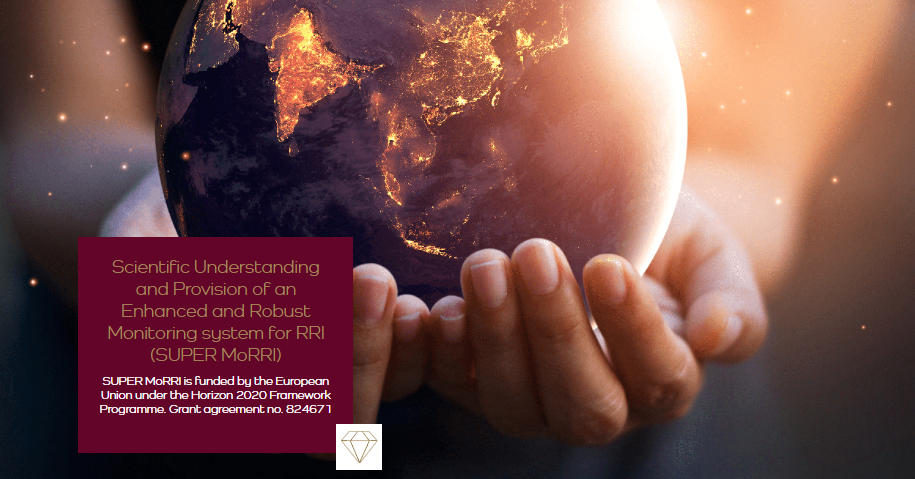
The SUPER MoRRI project has taken on the task of developing a framework for monitoring the evolution and impact of RRI – Responsible Research and Innovation. In the literature there is no shortage of suggestions for RRI indicators (cf. the MoRRI indicators), assessment practices, and monitoring schemes, so the idea of SUPER MoRRI should be to improve on the state of affairs, to develop a framework of high quality.
And when we do research on RRI, we would like ourselves to be responsible. Throughout year one of the SUPER MoRRI project, we have been engaged in putting together a Strategic Plan for developing a monitoring framework for RRI. The plan sets out an agenda for monitoring progress toward more responsible ways of doing scientific research and propelling science-driven innovation. Monitoring will take the form of a framework, with the goal to:
Core to the strategic plan of SUPER MoRRI are two principles: responsible quantification and credible contextualization. Responsible quantification requires continuous reflexive conceptual development, staying attuned to the most recent findings in studies on the use of indicators, but also, and perhaps most challenging, humility. Responsible quantification means acknowledging that what is deemed responsible or irresponsible is actor, context, and relation dependent. This requires coming to terms with the need for an open dialogue, especially with those being monitored, on what responsible quantification and monitoring means for them. Credible contextualization requires acknowledging that concepts as contentious as RRI cannot be decontextualized and require accompanying information for users to properly contextualize their creation, use, and meaning.
The consequences of this approach are that the MoRRI indicators have been critically reviewed, and that some of them will be dropped, or will change. In addition, there will be a diversity of alternative data collection vehicles that exist throughout the project. These include international studies of RRI in the context of research funding organizations (RFOs), research performing organizations (RPOs), secondary data sources, the Eurobarometer, and a series of complementary case studies. A standardized questionnaire is not included in the data collection.
The many actors who are working in this environment have generated a wealth of information and tacit knowledge. They all would benefit from a platform for sharing and communication. In recognition of the benefits and opportunities that this space would provide, SUPER MoRRI is actively co-creating an ecosystem with these goals in mind. In the ecosystem, other H2020 Science with and for Society (SwafS) projects are participating, sharing insights and setting out to co-develop an RRI self-assessment method. For that our close connection to SIScode, also participating in the ecosystem will bring very useful insights.